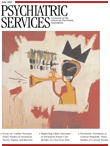A Supported Education Program in a State Psychiatric Hospital
Many state psychiatric hospitals are moving toward a recovery-oriented philosophy. Although "recovery" and "state hospital" may seem contradictory, Oregon State Hospital (OSH) has worked to reconcile the potential conflicts by formally endorsing and implementing Recovery International, a peer-run self-help system, into its treatment philosophy and programming. In addition, the forensic program uses the extended period of treatment required by Oregon law to promote recovery by enhancing services. Supported education, which involves helping patients achieve their education and training goals, is one of those treatment enhancements.
Supported education is a service comparable to supported employment. Services include helping a person choose an education goal and selecting a program such as a GED, adult basic education, a training program, or coursework at a college or university where they can achieve the goal. Education specialists, similar to employment specialists or job coaches, assist patients with registration, financial aid, course selection, accommodations, tutoring, and other services that might help the enrollee to be successful in his or her education program. The education specialists are available for troubleshooting on campus and providing personal support.
Supported education has been designated an "emerging practice" by the Substance Abuse and Mental Health Services Administration of the federal government and an evidence-based practice by the state of Oregon. Research indicates improved employment outcomes, reduced rates of hospitalization, and an increased sense of self-efficacy for participants.
Supported education lends itself to many state hospital settings, especially those with longer-term forensic programs. In such programs, psychiatric symptomatology has often stabilized enough for patients to be considered for discharge, but they must demonstrate additional capacity for safe community living. OSH's forensic and longer-term civil commitment programs initiated a supported education program in mid-2007. The range of education options includes adult basic education, computer literacy, English as a second language (ESL), GED preparation and completion, and enrollment for college credit online and on campus.
Six qualified teachers provided services both on and off the units until 2009, when new treatment malls made five classrooms available. There are no eligibility requirements for the program except in regard to safety issues. Each patient is assigned a primary teacher who provides instruction, coordination, and progress reports to the patient's interdisciplinary treatment team. In the past two years for which data are available (2007 and 2008), the program served 122 and 133 patients, respectively.
Teachers use a variety of materials and methods for assessment and measuring patients' progress. They tap multiple instructional resources, including various software programs that are available in the computer lab.
Patients who began college classes in 2007 enrolled in 70 credit hours and completed 63. Those enrolled in 2008 attempted 237 credits hours and completed 193. One person completed a bachelor of science degree in liberal arts in 2007. ESL students showed gains in their ability to speak English.
Classes taken include general studies (26% of patients), GED preparation (12%), basic math (11%), reading (11%), computer keyboarding (35%), online learning (28%), ESL (7%), and college courses (online and on campus) (12%). Classroom attendance averaged 77% in 2007 and 82% in 2008. The retention rate in 2007 was 95%; the retention rate in 2008 was 97%.
Several issues have arisen with the implementation of this project. The first was the reluctance of the colleges to provide financial aid to hospital forensic patients. After disability rights were asserted on behalf of the patients, the colleges agreed to review funding on a case-by-case basis. A second issue concerned Internet access for patients doing online coursework. A separate network with a secure log-in process was established for these patients.
The supported education program reflects the growing awareness that programs within the psychiatric hospital must move beyond traditional treatment and address the desires and needs of the patients. The popularity of the supported education program among the patients is demonstrated by the attendance and retention rates and a current waiting list of 30. Supported education programs offer hope and meaningful activity to improve the patients' quality of life within the hospital and to expand opportunities to develop work and living skills essential for transitioning to community life.



